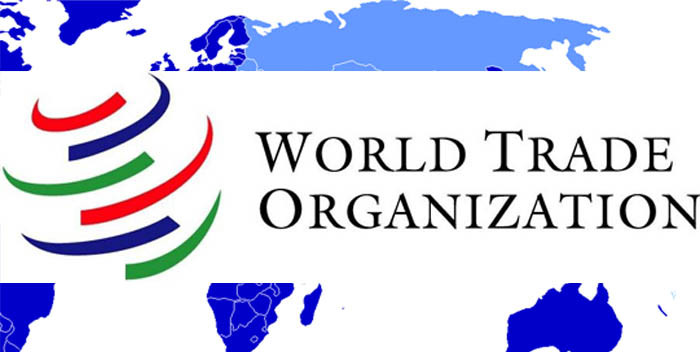Two breakthroughs occurred this weekend at the World Trade Organization’s meeting in Nairobi. The first was the abolition of agricultural export subsidies, which Director-General Roberto Azevedo described as the most significant achievement in agriculture in the WTO’s 20-year history. The second was achieved through an omission: The meeting was adjourned without the usual reaffirmation of the goals of the 2001 Doha round. Doha was the last great attempt at a global trade agreement, and progress toward its goals has been at a standstill ever since. Escaping from the impasse of Doha may give the WTO a new lease on life, enabling it to shift its focus perhaps toward encouraging bilateral trade deals between members rather than trying to pass one grand deal. The recently negotiated Trans-Pacific Partnership and the Transatlantic Trade and Investment Partnership under discussion are notable examples of this trend in action.
Other aspects of this productive weekend of discussions are worth mentioning. Unlike previous meetings, much more was achieved than is typical for the WTO; the European Union and United States have wanted to do away with the Doha round for some time now, and it is notable that the so-called developing countries — particularly the usually intractable India — were willing to accept Doha’s demise. Indeed, the Indian government has received criticism domestically for its perceived poor return from these latest negotiations. Also of note were the way in which the negotiations were handled, and who attended them. Reports have emerged that the majority of negotiators were not present at critical talks; the real action happened behind closed doors in a room containing only negotiators from the United States, the European Union, China, India and Brazil. This is particularly interesting in light of recent developments.
But the links between the IMF and WTO developments seem very clear. Both institutions, after all, are products of the 1944 Bretton Woods Conference, in which the United States and its alliesshaped the post-war order — the very order that is now being challenged by the BRICS countries (Brazil, Russia, India, China and South Africa). There have been breakthroughs in which the two sides — broadly the United States, Europe and Japan versus the BRICS — have been able to do business where previously they could not. These developments have been a long time coming. The WTO’s Doha round has been “in process” for 14 years now. Its predecessor, the Uruguay Round, was completed in eight. With every year that has passed and every failed attempt to reboot it, the hopes of a successful conclusion to Doha have become more remote, bringing its end inevitably closer. The IMF changes, meanwhile, reflect the shift in the global economy that has been underway for a some time, the rise of the BRICS countries in the last decade is testament to that.
A number of pieces fell into place this year, contributing to the impetus for change. In 2015,China created the Asia Infrastructure Investment Bank, an alternative development bank that, along with the New Development Bank or “BRICS Bank,” directly challenged the existing Bretton Woods institutions. There were discussions in April’s G-20 meeting over how to sidestep the United States and reform the IMF without U.S. consent. Similarly, progress in the Trans-Pacific Partnership toward the end of the year demonstrated the potential for bilateral or group trade agreements, making the WTO’s multilateral impasse even more glaring.
In addition, the U.S. interest rate hike in December, which was well advertised in advance, brings to an end the previous era of emerging markets growth for which the cheap dollar has been partly responsible. This might have created an attitude among countries such as Brazil, which is now mired in recession, that this is a good moment to bank the gains accumulated over the previous years. An additional factor worth considering is the U.S. election cycle. The holdup on IMF reform was largely the result of the intransigence of a section of the Republican Party. The fact that presidential elections loom in 2016 appears to have loosened up some of these entrenched positions, with Republicans not wanting to appear overly difficult and Democrats perhaps wishing to push through changes while there is still time.
Whatever the causes, global leaders go into the holiday season following an uncharacteristically fast-paced period of international negotiations. It is hard to say if concessions from one side led to concessions from the other — whether, for example, the United States allowing the IMF reform convinced India to allow the death of Doha, or the Special Drawing Rights decision somehow led to the others. Whatever the exact reason, December has been an extremely productive month in global terms. The year comes to an end with the world’s institutions a great deal more representative of reality than they were at the start.
